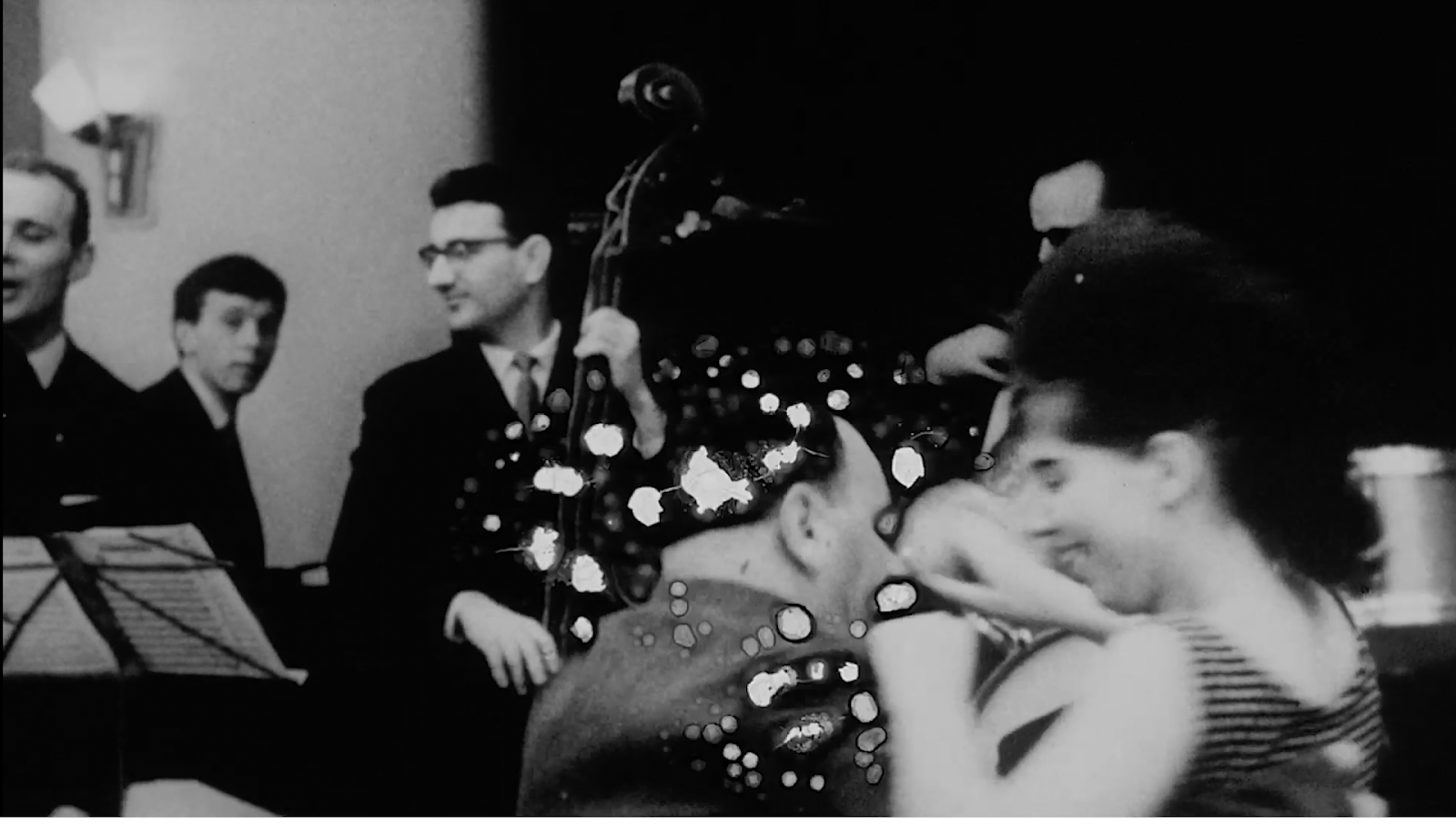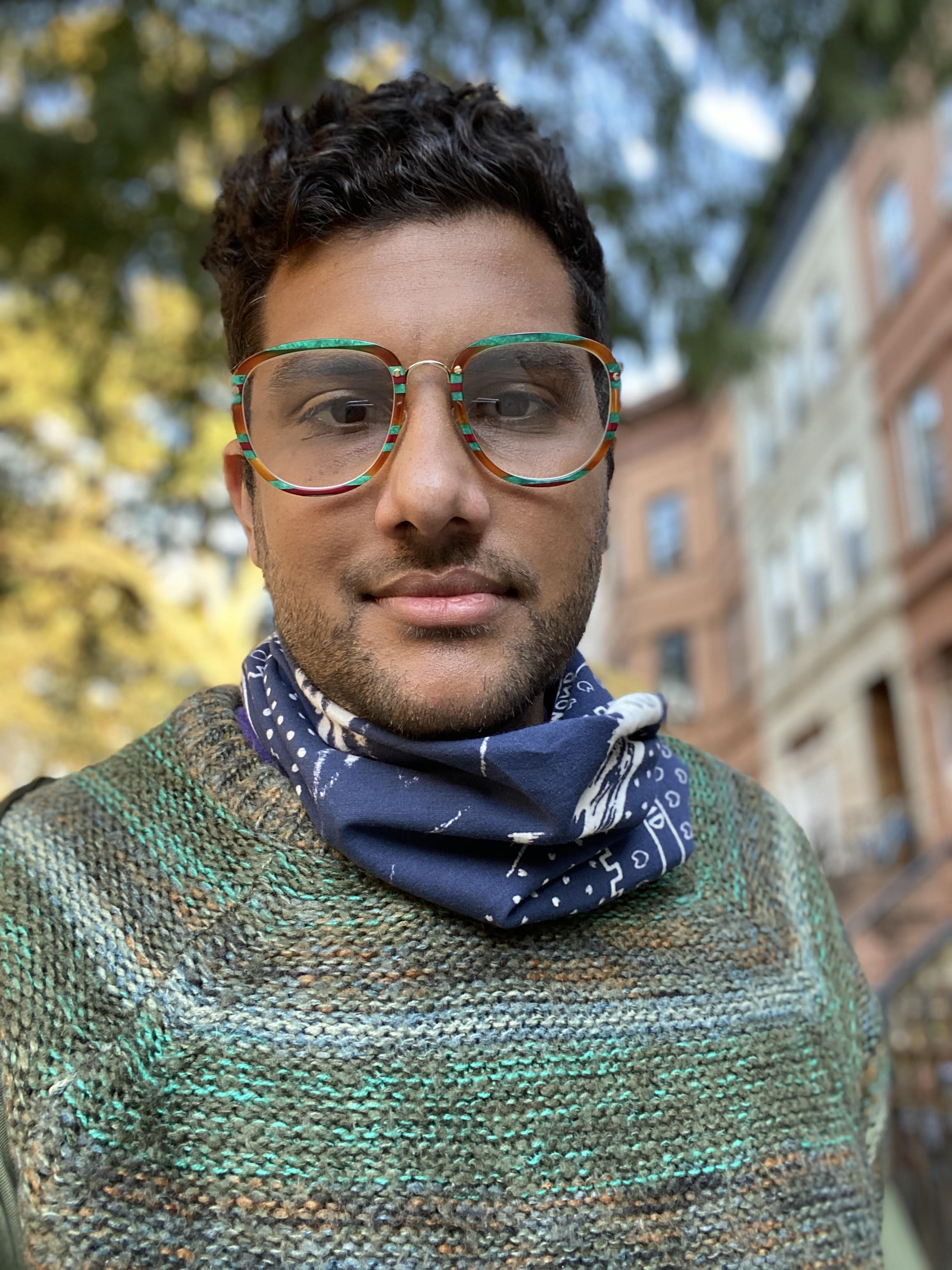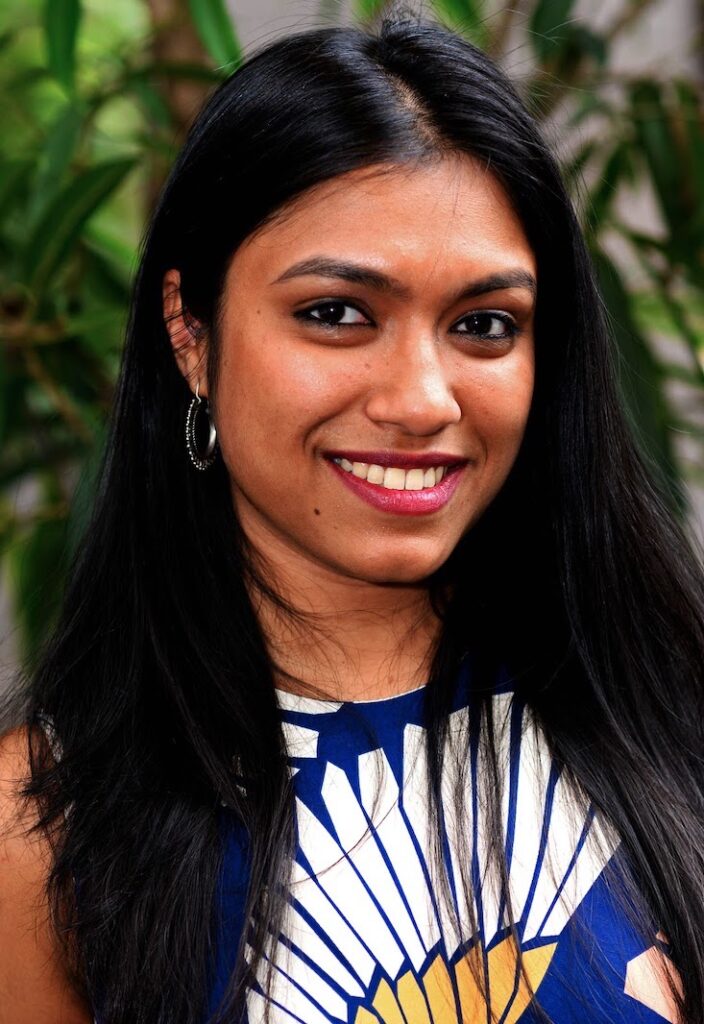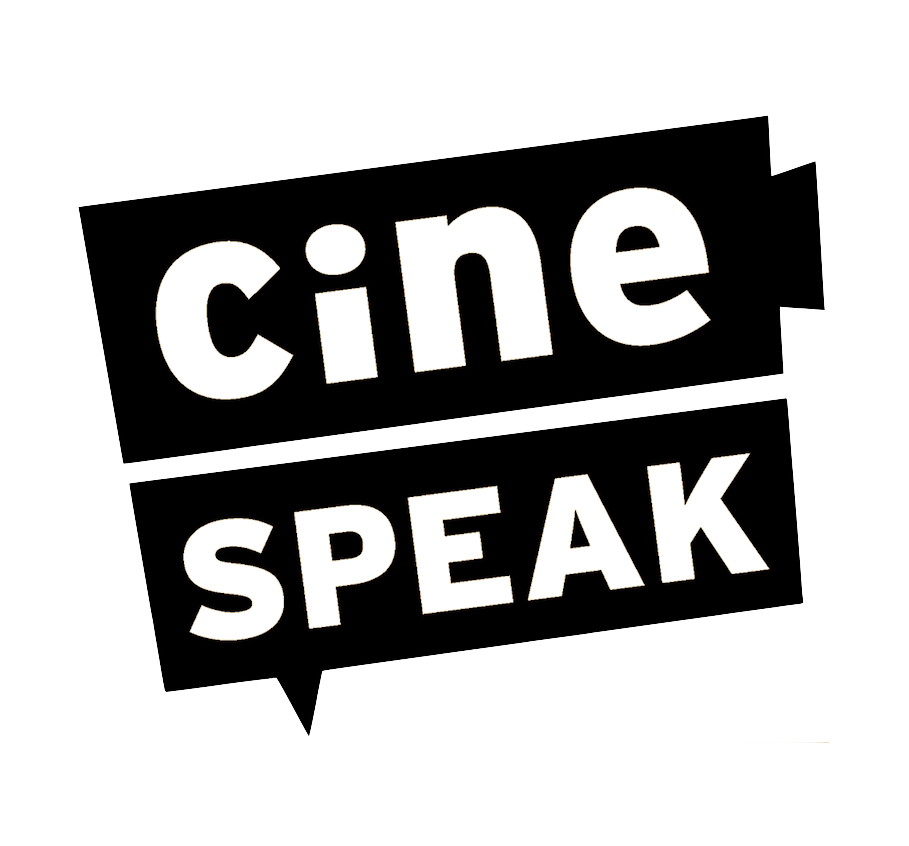
09 Apr From a Bookshelf to Screens Everywhere: The Story of Prismatic Ground
BY BEDATRI D. CHOUDHURY
Inney Prakash is the Founder-Director of Prismatic Ground, which is a new festival centered on experimental documentary running virtually from April 8-18 2021, hosted by New York’s Maysles Documentary Center and Screen Slate. Before I look at the 50+ film lineup, I am intrigued by the name and ask Prakash the story behind it. “I was working in a used bookstore in the summer of 2019, in Detroit,” he says, “I was dreaming about what my life could be when I discovered a book on the shelf, on a slow day.” It was a book of poetry by the same name, by Marguerite Young. “And so I decided immediately that I would use the name for something. I wasn’t sure what yet,” he adds.
Prakash, who has been working with film festivals for seven years, started working at the Maysles Documentary Center last year, shortly before the pandemic unfurled itself on us and our film viewing habits. “With the pandemic, I discovered a unique opportunity to create something like a film festival with fewer resources than would be required for in-person events and I wanted to seize that,” he tells me when I ask him why he decided to launch a film festival in the second year of a pandemic. “In the past couple of years, I have really fallen in love with work that’s often described as experimental documentaries. I think there’s a lot of incredible work being done in this area and there was room for at least one more platform for works like that,” he adds. The pandemic had already acquainted him with the process of curating films for the virtual space. This helped him realize new ways to present films and experiment with availability windows, and also made him aware of the global audience online film programs could now reach. For the festival’s debut year, Prakash wanted to hold on to the “last gasp of online pandemic life by making the festival virtual, free and global.”

A virtual film festival allowed Prakash to save on the usual costs of starting a festival, like travel and venue rental fees. “I decided that I was going to spend money on paying filmmakers instead. As an act of solidarity, it was important for me to push back against the really unhealthy norm of not paying artists for their work,” he says. He set a fee for submissions for filmmakers who could afford it and offered waivers to those who couldn’t; he then used the money to pay the filmmakers whose films made it to the final program. “The way I see it, filmmakers who are allowing their work to be shown in a festival in its first year are taking a chance on me. And I wanted to return the favor by taking a chance on filmmakers who were truly excited about being a part of this project,” he says. The result is an eclectic program that includes experimental documentaries from a diverse cross-section of filmmakers at various stages of their careers, each with a distinctive voice and style. Each of these films is a unique work of art, but they also come together to form a program that is a conversation within itself.
There are no overarching themes in the program. The poem that the festival borrows its name from refers to the sea, so Prakash divided the program into four loosely themed sections that he calls waves, using the titles: desire is already a memory, kill the colonizer in your head, i’m a stranger here myself, and through the flowering fields of the sea. All these names are references to other literary works or films within the program. “I don’t want to be too dictatorial about how these films fit into those sections or the ways in which they might resonate with the audience. I want people to think about that on their own. I certainly followed a certain logic but I like letting people interpret things for themselves,” Prakash explains.
The festival opens with the films of Anita Thacher, the radical Brooklyn artist and filmmaker who passed away in 2017. The centerpiece is a special presentation by Creative Agitation (Erin and Travis Wilkerson), Newsreels of the Distant Now, and the closing night program includes a screening of Bill and Turner Ross’ Second Star to the Right and Straight on ‘Til Morning and Shabier Kirchner’s Dadli, followed by a conversation with the filmmakers. While these special programs can be viewed on Screen Slate’s Twitch channel, the rest of the program will be available on the festival’s website and the website of the Maysles Documentary Center.
There is an assumption that experimental documentaries are definitively abstract and obtuse, which often inhibits new audiences from accessing them. A festival dedicated solely to such works of art begs the question: who is this for, and who is watching? Since there are preconceived notions and binaries that often distance experimental documentaries from a potential audience, Prismatic Ground intends to salvage the artform from the cramped niches people often pigeonhole these films into. “I think the reason avant garde work gets the reputation it does, is that people naturally are put off by things they don’t understand. And my plea would be, don’t worry about understanding, just let yourself respond to it and see if an interest grows from there. I definitely think there is a larger audience for experimental work than currently exists,” Prakash explains.

There is a feeling of community—of growing one, of strengthening one, and of showing up for one—that underscores the entire conversation I have with Inney Prakash days before Prismatic Ground goes live. Despite the lonely recesses we often put experimental documentaries into, there is a sense of coming together in Prismatic Ground. Over the course of thirty minutes, Prakash speaks to me of Italo Calvino, Kurt Vonnegut, Barbara Hammer, film twitter, Alliance 4 Action, Maysles, MoMA—all seemingly disparate worlds that come together in his program. The logo for the festival, he tells me, is inspired by a still from a Barbara Hammer film called Snow Job: two hands pressed together to make a triangle, denoting a prism. The program is a composite of subtle nods and verbose tributes to artists Prakash admires, but also whose works he wants to share with the communities that have grown around him. “Over the last year, I’ve found solace and camaraderie in a handful of communities and have found that banding together is the most effective way to agitate for change, forge solidarity and, paradoxically, grow as an individual. It is impossible to do it alone!” Prakash signs off.
His words call to mind the work of a prism: to remind us that every ray of light is actually many rays banding together to light up our minds.
Where to Watch: Now thru April 18, enjoy the inaugural Prismatic Ground Film Festival for **FREE** here. (Please Note: This festival is entirely self-funded. As you are able, please consider making a donation to support this innovative project.)

Bedatri D. Choudhury works with documentary films and is a culture journalist. She is a member of cinéSPEAK’s 2021 Editorial Collective. Born and raised in India, she lives in New York City.

Sorry, the comment form is closed at this time.